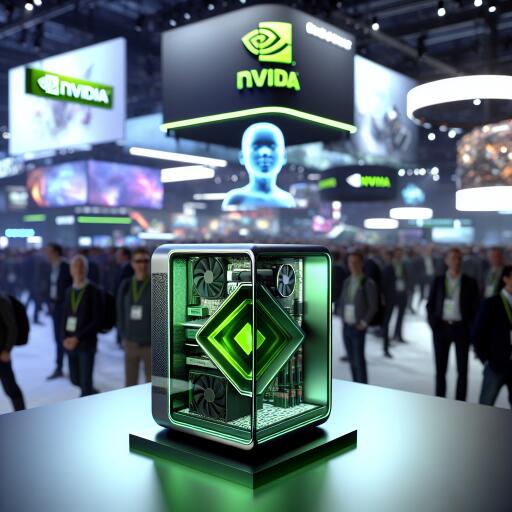Nvidia Leads the AI Revolution with Exciting New Announcements at Computex
At Computex, the stage was set for an exposition of technological advances, with major companies like Microsoft, Intel, AMD, Apple, and Qualcomm all buzzing about artificial intelligence (AI). Yet, Nvidia stood out not just for its discourse on AI but for showcasing how it’s already capitalizing on this technology. Nvidia’s presentation delved into its pioneering hardware for cloud-based AI, spotlighting the significant strides made with its Blackwell platform. The progression towards the highly anticipated Blackwell Ultra and Rubin platforms underscores a future where AI training becomes more feasible and scalable, all while keeping costs in check.
However, Nvidia’s influence stretches beyond the realm of data centers. Nvidia was one of the first to integrate AI-accelerating Tensor cores into consumer GPUs, marking a significant milestone nearly six years ago. Now, with the introduction of “RTX AI PCs,” Nvidia is at the forefront of branded systems. This distinction applies to any desktop or laptop equipped with an RTX 2000 series or newer GPU, underpinning the powerful capabilities of Tensor processors.
In a move to further bolster its ecosystem, Nvidia has announced a partnership with Microsoft. This collaboration aims to bring forth developer tools designed to leverage RTX GPUs for enhanced application performance via the Copilot Plus programming interface. This is particularly critical for on-device image and video generative AI tasks, which demand substantial power beyond what integrated GPUs in recent CPU chips can provide. Nvidia’s discrete GPUs, such as the RTX 4050 mobile, boast capabilities of up to 194 TOPS (trillion operations per second), showcasing a significant advantage over competitors.
Nvidia’s ACE suite represents another milestone, poised to revolutionize gaming with more interactive nonplayer characters. The technology was highlighted with a demo from Perfect World Games, showcasing how these enhanced NPCs can enrich gaming experiences. Additionally, Nvidia’s Project G-Assist aims to transform gaming assistance. This framework empowers developers and gamers alike to create AI coaches, offering personalized, game-specific advice and automatic performance optimization.
While no consumer hardware was announced, Nvidia took the opportunity to unveil its SFF-Ready guidelines for enthusiast small form factor (SFF) systems. These guidelines aim to ensure compatibility for high-performance cards within more compact systems, offering a formal dimension set for both cards and cases. This move will undoubtedly appeal to enthusiasts looking to maximize performance in minimal space.
Beyond these major announcements, Nvidia revealed several smaller yet significant developments. The second beta of the Nvidia App is set for release, offering enhanced functionality including one-click GPU tuning and performance stats. Additionally, VLC Video Player and DaVinci Resolve have integrated RTX Video Super Resolution upscaling, promising an improved visual experience. Finally, Nvidia’s commitment to community engagement and content creation is underscored by making more of its RTX Remix tools open source.
As technology marches forward, Nvidia’s announcements at Computex highlight the company’s role not just as a participant but as a leader in the AI revolution. With advancements across gaming, development tools, and hardware guidelines, Nvidia is shaping the future of both consumer and cloud-based AI technologies.








